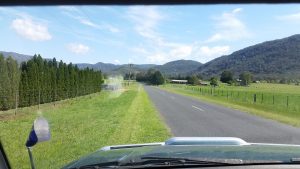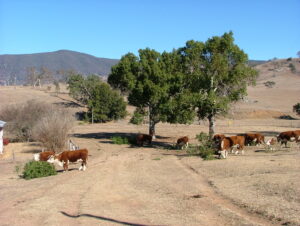Who is the Aussie farmer’ friend?
The good farm debt consultants, of course!
Don’t be misled into cash-draining debt by some foe working for the bank or government. Good debt is debt to buy an appreciating asset like more land. Bad debt is debt to cover operating costs or farm succession. There’s more than one way to finance farm operations and succession.
On the Australian Bankers Association website is a bank-friendly warning from ASIC, “AFCA and consumer groups continue to raise concerns with ASIC about the conduct of debt-management firms” –
Who is on the farmer’s side? Not the Bankers’ Association! Nor ASIC! Both are trying to frighten farmers from getting good advice about farm loans. Farmers can wonder whether ABA and ASIC know anything about livestock or crops and imagine that “fencing” is a sport played with swords.
Banks made to refund billions. A farmer who did this would be in gaol!
In March 2023 banks were ordered to or offered to refund $4.7 billion dollars they had wrongly taken from customers. One farm debt consultant says that could be the tip of the iceberg. “ASIC protects dishonest banks instead of gaoling their directors who have ruined farmers’ lives. How can banks steal $4.7 billion from customers and yet the directors who direct bank operations have not even been prosecuted for theft or fraud, let alone gaoled?”
Negotiating with bankers and marking calves have a bit in common
As a 4th generation farmer, Greg Bloomfield was fortunate enough to qualify as a Chartered Accountant, CPA, Chartered Company Secretary and Fellow of the Institute of Directors (AIDC) by his early 20’s.But like his grandfather and great-grandfather what he really enjoys is running sheep and cattle. When banks were de-regulated in 1987 and given free- rein to rob customers, he decided to focus his Australia-wide professional practice on helping farmers fight back. He did that while running sheep at Tullamore and cattle at Braidwood. The difference between bankers and livestock are that the stock are pretty honest, but both lose a bit in the process. He still does that and not one farmer anywhere has had anything but praise for his determination in getting them a fair debt write-off. The “about” page on his website displays the glowing praise of his past clients.
Greg Bloomfield and GBAC are on the farmer’s side. For years he headed the largest branch in NSW Farmers and toured the state visiting farms to get huge debt write-offs and addressing local groups. While he says “I’d rather be working cattle or fixing fences than battling banks”, the internet has meant that the time he spent traveling from farm can now be spent in earning farmers more money from debt negotiations with their bank, than many have earned in years of farming.
Borrowers beware and ensure you know what the repayments will be.
It was Greg’s wise neighbour, Frank, at Tullamore who cut to the essence of farm loans by saying “Borrowing’s the easy bit! It’s the paying it back that’s hard.” That is a truth that can be forgotten as we scramble to find someone to lend us the money we need.
The services that farm debt consultants like Greg provide are unsuitable and uncomfortable for dishonest and predatory banks and include:
making banks write off debt caused by predatory dishonest lending practices,
making banks share the suffering for setting debt-traps from which farmers cannot escape,
persuading the banks to give farmers a repayment holiday when the season or prices go bad
helping farmers increase their profits with cheaper more suitable loans in the first place
working tirelessly to help farmers clear debts, recover title deeds, farm debt free and enjoy the farm lifestyle.
The one who pays the piper, always calls the tune.
Banks have the opposite priority to farm borrowers. What makes the banks rich, makes the farmers poor – interest and charges. When the farmer cannot pay interest the bank increases the interest rate. When the farmer can’t make a loan repayment the bank gives an overdraft at a higher rate to cover the payment. The loan grows and grows like a cut-and-come-again weed crop. This can continue until the farmer is sold up when it reaches 80% or 90% of the farm’s market value.
Government too has the opposite priority to farm borrowers. It seeks an ever-expanding economy where money moves around and around to end up in the government coffers through taxes each time it moves. Farmers borrow then spend the money with the rural store, which pays the wholesalers who pay the manufacturers who pay their staff who pay the supermarket etc, etc. Farmers become the pipe through which the stock and crop sale money flows out to the great unknown.
If the government or banks are paying the people advising you, recognise that there is a line they do not cross. Because the person doing the paying determine what advice is given.
Don’t fight bank alone because they do it every day
What Greg and GBAC do is get alongside the farmers to make as much of the farm revenue remain in the farm finances tank as possible so that the farmers can turn on the tap and spend it on themselves and the family whenever they want.
That is what decent farm debt consultants do. They work exclusively for the farmer and family more than anyone funded by the banks or government are ever likely to do. If they are any good they produce a huge return on the investment in their fees. Because they are serious, persistent and have a few secret weapons up their sleeves. Greg works for the farmers, not for the government or for the bank!
As farm debt consultants for many decades, with their own farming, accounting and business experience, the GBAC consultants don’t apologies for making billionaire banks write off dishonestly obtained debt to help farm families struggling with flood, fire and drought, price fluctuations and government policies. You can ring Greg on 0428 417 496 to see whether he might be able to help you borrow better or shed some of the debt.






 he farm and want to leave their legacy to the next generation of farmers. It may start when the children are in their teens or be left until they are in their 50’s. The earlier the better, but flexibility is important for the plan to succeed.
he farm and want to leave their legacy to the next generation of farmers. It may start when the children are in their teens or be left until they are in their 50’s. The earlier the better, but flexibility is important for the plan to succeed. hat sets the pattern, but within those boundaries will be many complex issues, including relationships, finances, taxes, mortgages, competition amongst children and differing views of mum and dad.
hat sets the pattern, but within those boundaries will be many complex issues, including relationships, finances, taxes, mortgages, competition amongst children and differing views of mum and dad.

 businesses are not so vulnerable to weather and commodity prices, many are with our major cities somewhat dependent on beach weather. Recent floods have devastated many businesses. Often such disasters dramatically reduce the security value of a mortgaged property. That is the ideal time to start gentle negotiations for the bank to write off a good bit of the debt. When the debt is reduced, the chances of refinanced are enhanced. Those who have played their cards right will often find themselves refinancing a much smaller debt. That is converting risk into advantage.
businesses are not so vulnerable to weather and commodity prices, many are with our major cities somewhat dependent on beach weather. Recent floods have devastated many businesses. Often such disasters dramatically reduce the security value of a mortgaged property. That is the ideal time to start gentle negotiations for the bank to write off a good bit of the debt. When the debt is reduced, the chances of refinanced are enhanced. Those who have played their cards right will often find themselves refinancing a much smaller debt. That is converting risk into advantage. if it is possible to achieve the same result without borrowing from a bank.
if it is possible to achieve the same result without borrowing from a bank.